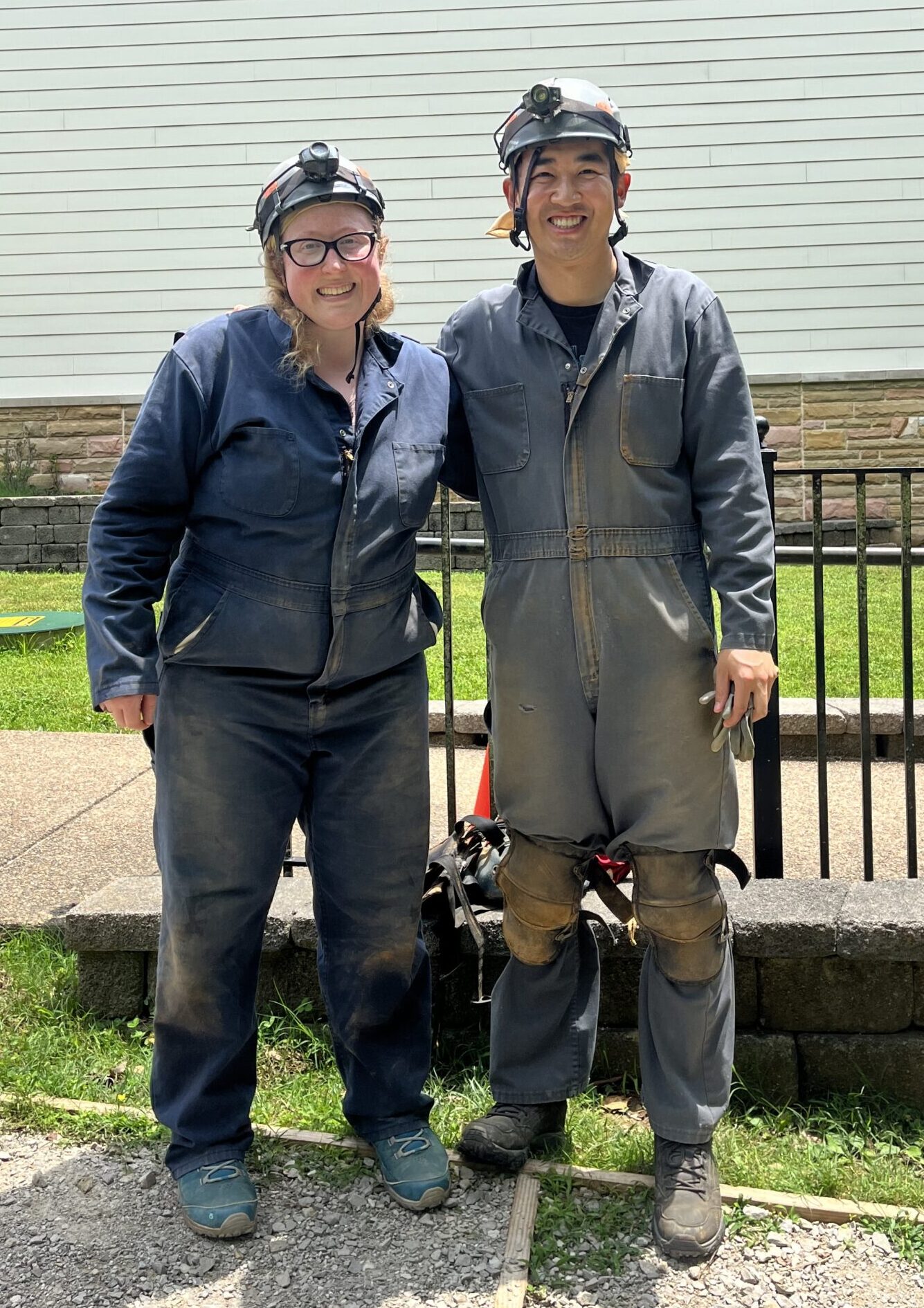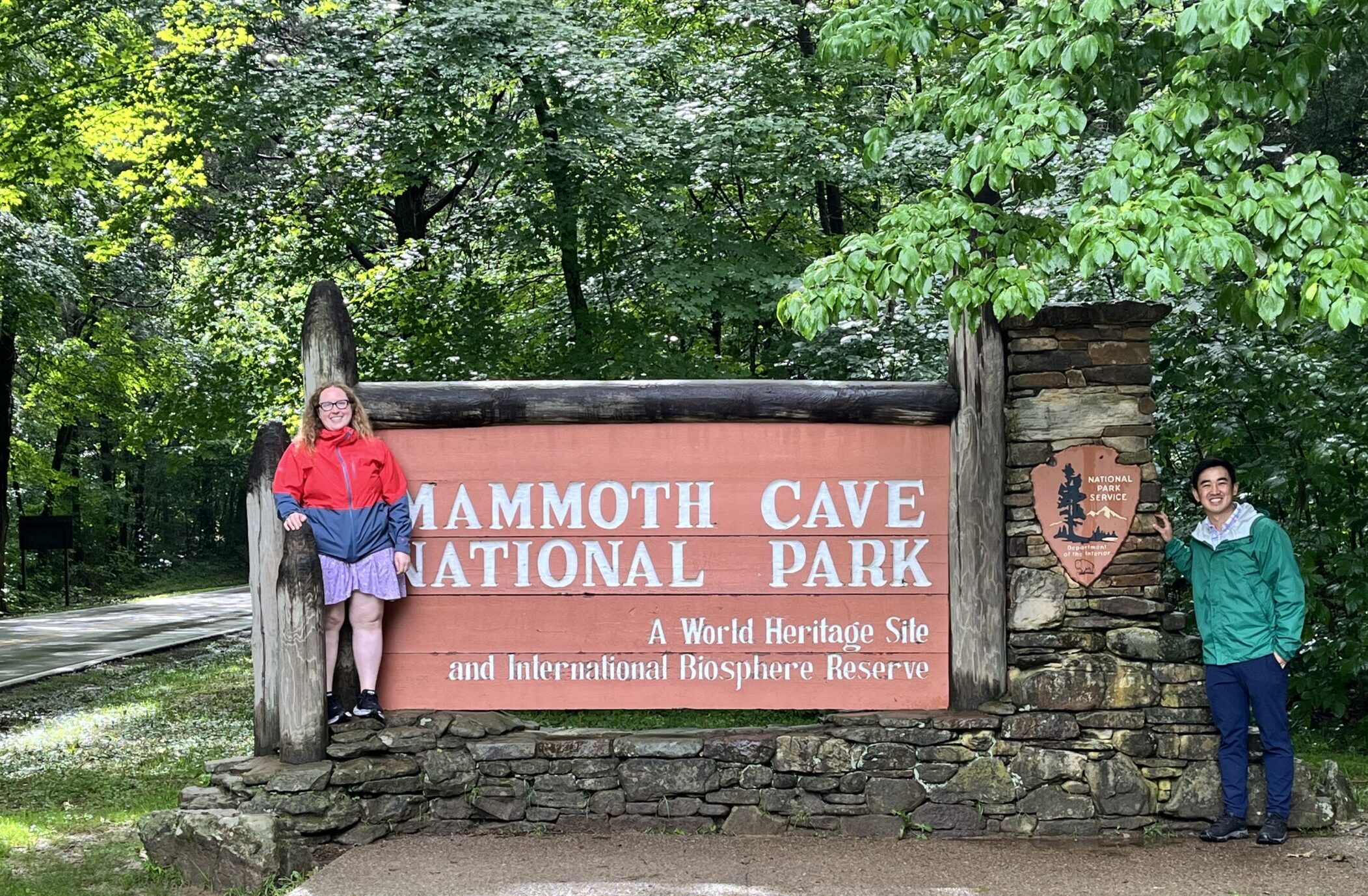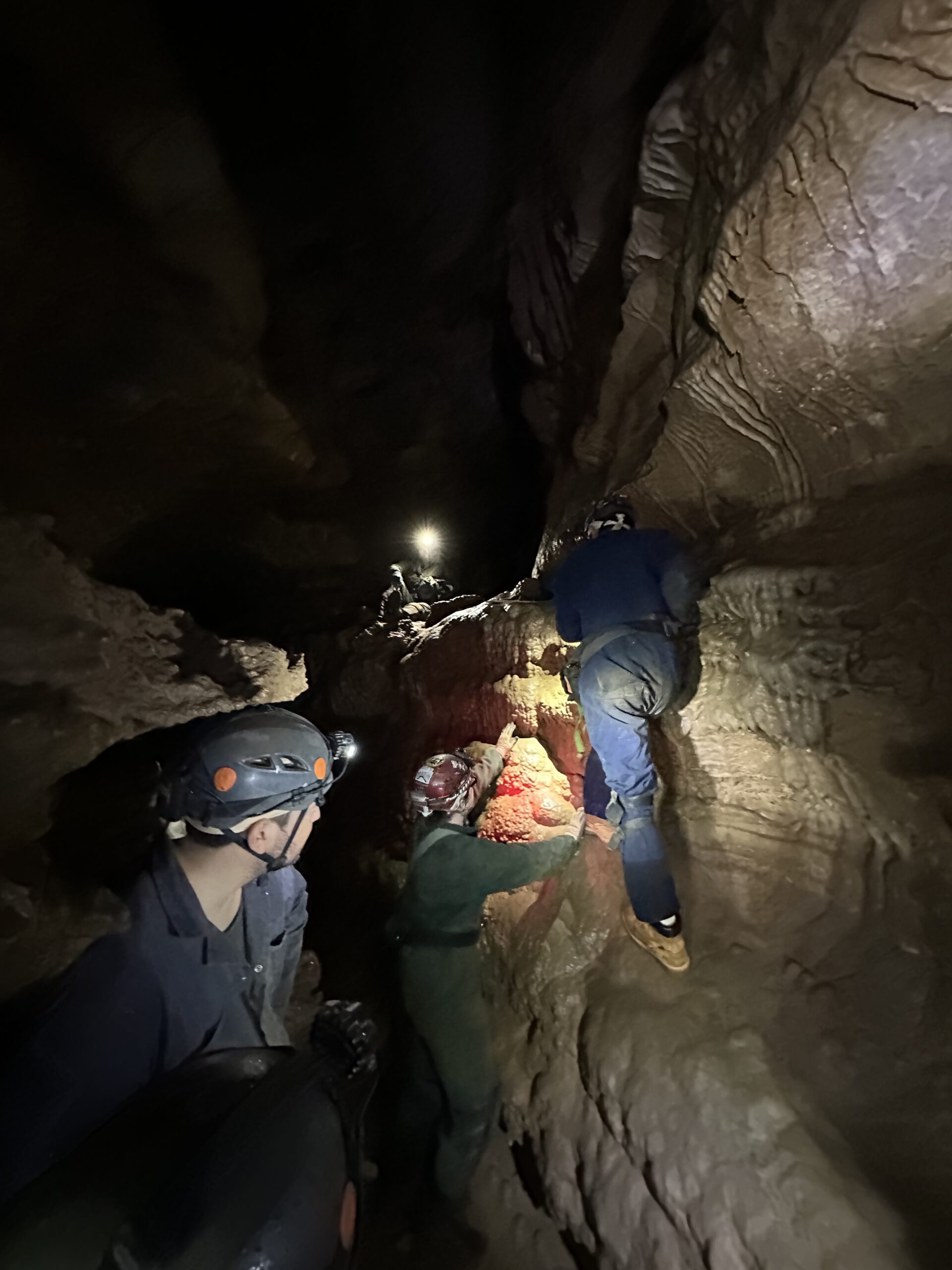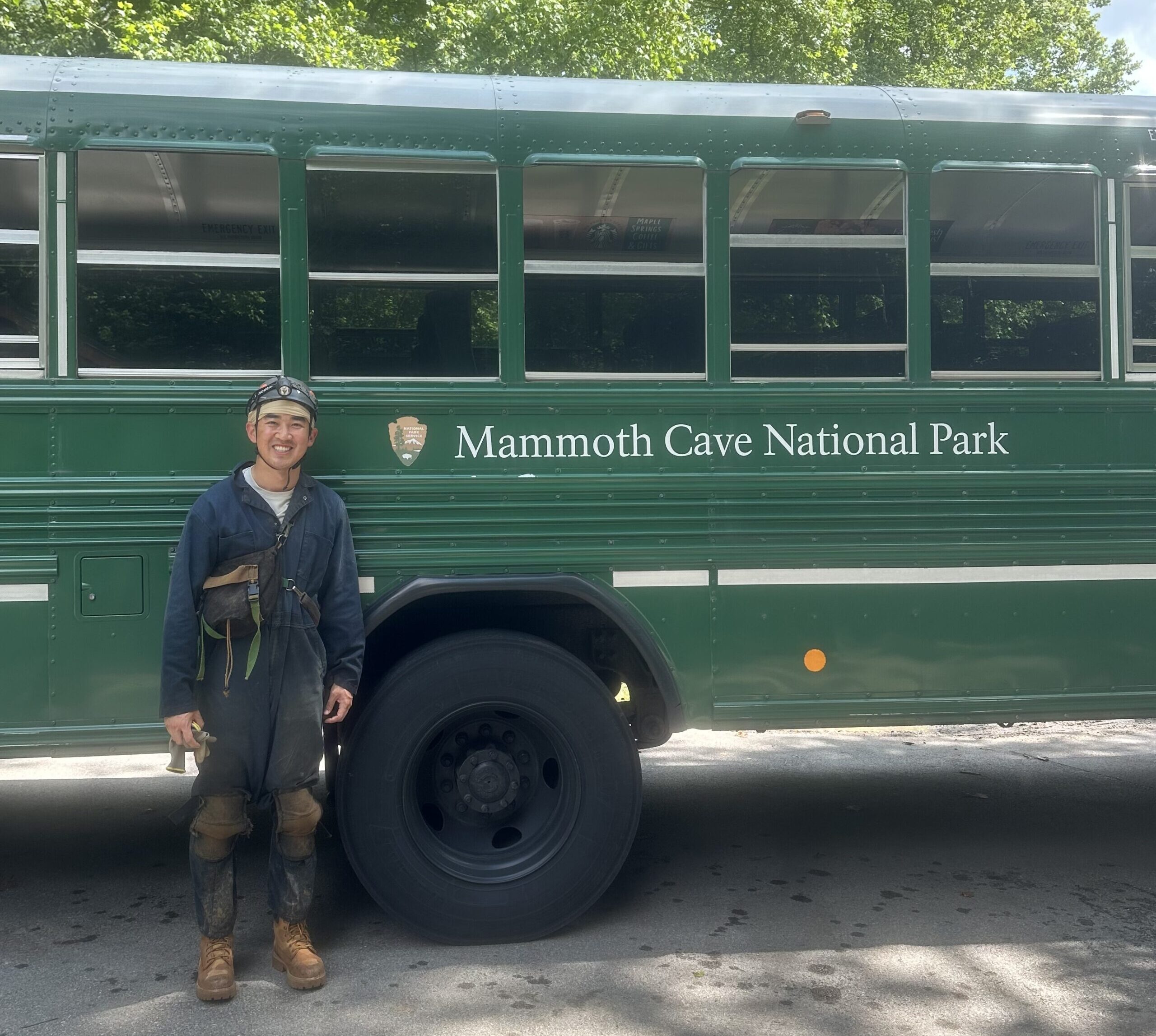Eddie Yuan is a second-year MBA student at the Wharton School of the University of Pennsylvania. Eddie spent his summer as a Consultant for the National Parks Business Plan Internship (BPI), during which he optimized tour operations at Mammoth Cave National Park to balance staffing capacity, safety requirements, environmental impacts, financial resources, transportation parameters and improve visitor experience.
Eddie joined us at the end of the summer to reflect on his BPI experience.
PGI : What initially drew you to this internship?
Eddie: I think there were two things that drew me to this internship. First, was that a former BCG colleague, Emma Phillipson, had done this internship the year before, and I heard about her summer at Olympic National Park and thought it looked super cool. Setting that aside, though, coming into my program from consulting with plans to go back, I thought I might have the opportunity to do something more unique and impactful this summer.
The BPI offered both the opportunity to work in an impactful industry, as well as in the public sector, which I hadn’t done before. And of course, be outside and work at a park! It was a good combination of things I was looking for in an internship and I felt like I could use my consulting skills well.
What was the orientation experience like for you? What were your main takeaways?
I was super excited for orientation because Acadia was one of the last big national parks in the US that I hadn’t been to, so it was awesome to spend the week there. The best part was definitely meeting everyone, both on the BMG and the rest of the BPI cohort. I feel like we got a chance to really bond, whether that was out exploring the park, at meal times, or some of the free time activities we did as a group.
The training content was really good too. I think it was a helpful orientation to what life is like at the parks, what it’s like to work for the parks, how we work as a part of the Business Management Group, and how that work fits within the goals of the National Park Service and even the Department of Interior.
 What did a “typical” week in your life look like during the BPI?
What did a “typical” week in your life look like during the BPI?
It certainly varied over the course of the summer. Initially, we were “in the field”, taking cave tours so we could understand the visitor experience and holding qualitative interviews with park management, tour guides and division chiefs. Then we started getting into the data – historical tour data, ticketing and utilization, etc. From there, much of our time was spent on analyses, developing the storyline, and putting together slides for our midpoint and final presentations.
So, while there was variance in our focus from week to week, we did have pretty consistent meeting rhythms over the course of the summer. On Mondays we would meet with Ashleigh, our BMG project manager to walk through our plan for the week, discussing what’s upcoming and what we might need her input on or to review.
Then, typically on Tuesday or Wednesday we would meet with Michael and Heather, our Mammoth Cave project champions to share progress or output we’ve made in the last week, what we were working on, or even just data insights. We also met with our thought partner groups (three other BPI interns) to catch up and hear about their projects and how their summers were going.
Outside of work, we would go to trivia or bowling in town on Monday nights. I started up a weekly pickleball league on Thursdays, and then on the weekends we were exploring around the area.
What are the most valuable skills you gained or honed?
I think it’s pretty common in consulting for the overall outline or the storyline of the presentation to be done by someone more senior, like a partner or a manager, on the case. In this internship, we were the partner, the manager, or the individual contributor doing the work, so I got a lot more opportunity to help define and write the narrative. We’re deciding what that PowerPoint deck looks like and what the story is that we want to tell, and then we identify and do the supporting analyses that help shape that story. So I think that manager mindset was one area where I feel like I grew a lot.
Another growth area came from the presentation itself. Of course, we presented new findings every week to our project champions. But at both the midpoint and the final presentation, we had to distill sometimes complex messages or findings to audiences that weren’t as in the weeds or as close to the details. So I think figuring out the right level of detail to communicate and the messages that speak to the unique concerns of the various entities in the room was a good learning experience.
How do you feel about the product you delivered?
I feel really good about what we delivered. We delivered eight prioritized recommendation areas, with an additional “laundry list” of 12 more things they could consider down the road. Even amongst the eight, we had things that were more quick wins that they could implement within a few weeks to a month and see positive improvements to the visitor experience. I feel like we were able to deliver something that both addressed the short term, medium term, and long term and captured what our stakeholders hoped to improve. There’s a lot of directions they could have gone in, so I think our deliverable helped to narrow it down to the most optimal.
How did this opportunity serve to build your professional network?
I think meeting and getting to know the other consultants from different schools and hear about their grad school experiences was great. My co-consultant was a public policy student, so I feel like we brought different skills or lenses to how we viewed our problem set, so that was beneficial as well. I also appreciated getting to know the members of the BMG and am glad to have them in my network moving forward.

How did your internship experience influence your career path? How has the internship set you up for your next career move?
I think this internship really showed me that there are a lot of organizations out there that are asking interesting strategic questions and could benefit from having someone with a consulting skill set and background – this experience opened my eyes to that a bit. Initially, I was curious how maybe different working in a strategic role at the NPS would be compared to what I’ve done in the past, and while they were different, there are a lot more similarities than I expected.
I will also continue to be a strong advocate for the NPS for the rest of my life. I had an awesome experience, and got a better sense for how social impact might fit into my career and even life outside of work. I’m going back to consulting and I don’t know what life will be like after that, but I feel like at least I got to see and understand a different side of things that I probably wouldn’t have gotten the chance to otherwise.
What was the most valuable aspect of being a BPI consultant? 
Personally, I think it was just the coolest thing to be part of the NPS and have so many unique experiences, whether that was training in Acadia, or going on all the cave tours, and really getting to know your park inside and out. I learned so much, but these unique “perks” of park life were really valuable to me.
I’d also add that from a personal growth perspective, the most valuable aspect was getting to live in a totally different part of the country than I may not have had the opportunity to otherwise. I grew up in the Midwest, but where we were in rural Kentucky had some Southern influence mixed with Appalachian culture in addition to some Midwest feel, which was really cool to experience. I loved living in a small town with a tight knit community environment, and also found a new appreciation for some of the economic challenges of rural America. This experience opened my eyes to how important parks can be to the communities surrounding them in terms of the economic value and community benefits to partnership.
What final words of advice or insight would you give to other graduate students interested in this experience?
I talked to a second year when I was a first year at Wharton, Atessa, who did the program before me, and she boiled it down to “if you want to become a more interesting person and have some pretty unique stories to tell, then do this internship”, which was a good selling point for me. Yes, of course you’ll get to hone those consulting skills and do a cool project and all of that, but it’s such a unique summer.
To that I would add, just jump in and give it a chance and come in with an open mind. Even though the matching process might be uncertain, I think everyone comes away pretty happy with the park that they end up at, and there’s definitely unique pros and cons to each of them.
